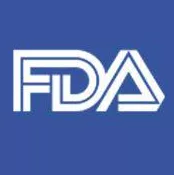GRAS Acrylamide-Reducing Baker’s Yeast Strain Gets OK from FDA

Renaissance BioScience Corporation--a global yeast innovation company--has announced that the U.S. Food and Drug Administration (FDA) has approved the company’s Generally Regarded as Safe (GRAS) notice for its nonGMO, acrylamide-reducing (AR) baker’s yeast strain.
“The acceptance of our acrylamide-reducing yeast as GRAS by the FDA is a significant step forward in the commercialization and marketing of the AR yeast for a wide variety of food and beverage sectors,” says John Husnik, CEO of Renaissance BioScience. “GRAS status provides further validation to food manufacturers worldwide to apply our innovative AR yeast to address the acrylamide problem that continues to be a concern in many foods and beverages. In foods that already contain yeast we believe our AR yeast can quickly and seamlessly replace the use of conventional baker’s yeast, with minimal or no change to the food production process, thereby reducing the amount of acrylamide in the final consumer product by up to 90 percent. For foods that do not traditionally contain yeast it is also possible to significantly reduce acrylamide levels using our AR yeast by making reasonable process alterations, as our laboratory results have shown.”
Husnik adds that, “With government reports concerning acrylamide being issued recently by the U.S. FDA, the EFSA, the U.K. FSA, Health Canada and the Japanese government, acrylamide reduction continues to be an important focus for health and food safety regulators, governments, and food and beverage manufacturers around the world.”
Earlier this year, FDA issued final guidance on how food manufacturers, processors, growers and operators can reduce levels of acrylamide. Acrylamide is considered to be a human carcinogen in food and has reportedly been linked to cancer.
Sign up for Food Safety Magazine’s bi-weekly emails!
Looking for quick answers on food safety topics?
Try Ask FSM, our new smart AI search tool.
Ask FSM →






